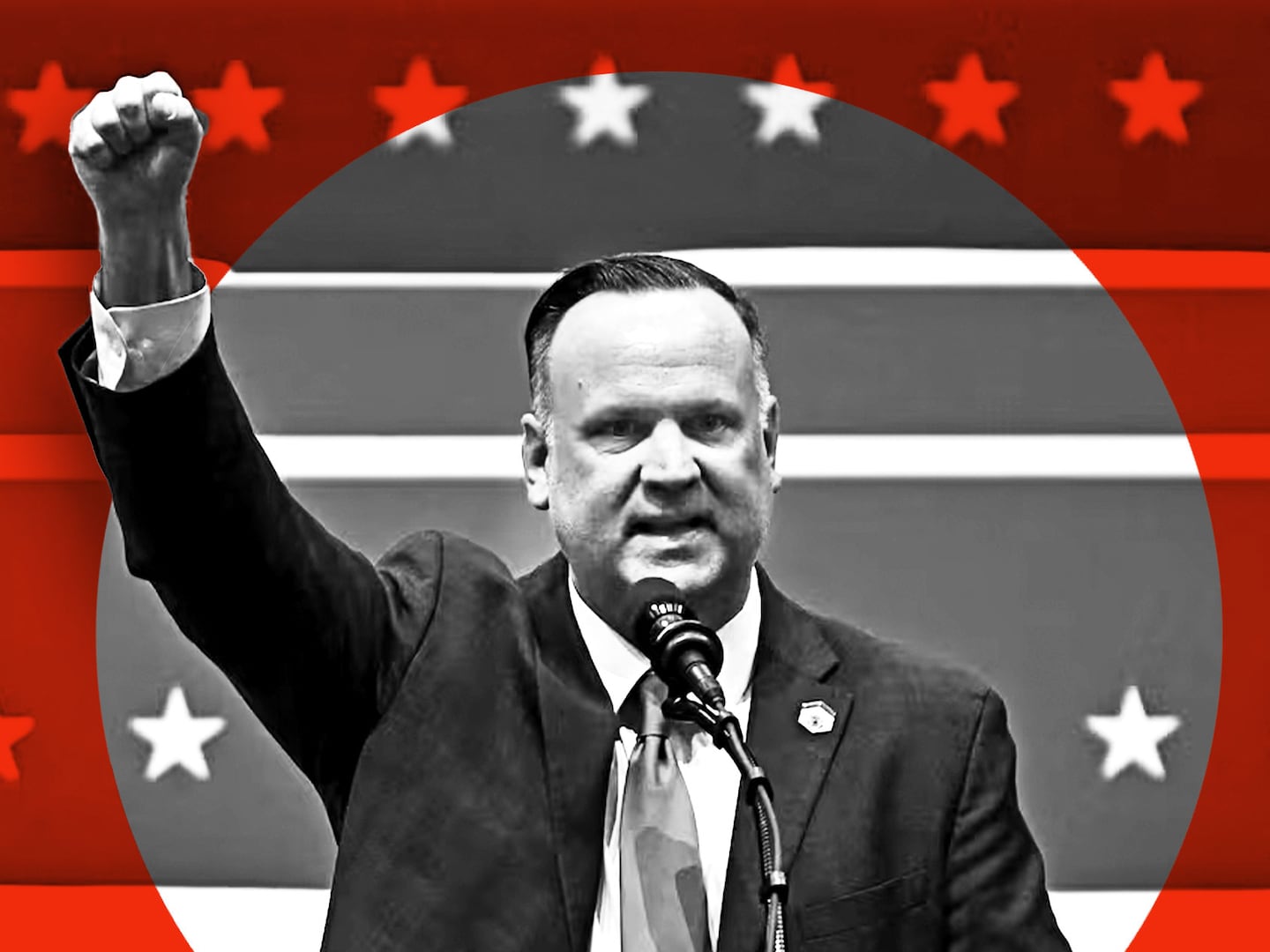Judge Richard A. Posner, the judge who delivered the landmark decision that upheld voter ID laws in Indiana in 2007, has made legal history again.

In his new book, Reflections on Judging, Judge Posner includes a single sentence admitting he made a mistake: “I plead guilty to having written the majority opinion (affirmed by the Supreme Court) upholding Indiana’s requirement that prospective voters prove their identity with a photo ID—a law now widely regarded as a means of voter suppression rather than fraud prevention.”
Further extrapolating on his turnabout in an interview with HuffPost Live’s Mike Sacks, Judge Posner, who sits on the United States Court of Appeals for the Seventh Circuit, blamed the lawyers for not giving “strong indications that requiring additional voter identification would actually disfranchise people entitled to vote.” Posner further defended himself by saying that even the more liberal Justice John Paul Stevens wrote an opinion for the Supreme Court affirming Posner’s decision. Then Justice Stevens in an interview with the Wall Street Journal defended his decision in Crawford v. Marion County Elections Board and blamed the lawyers too.
The single sentence and brief webcast set off a firestorm of coverage and criticism, surprising Posner. The lawyers challenging the law defended their litigation strategy, Democrats criticized Posner for being sloppy in his ruling and Republicans criticized Posner for being sloppy with his mea culpa. The Washington Post’s Charles Lane criticized the judge for even speaking to the press or writing about the issue, arguing that it demeans the judiciary and is “corrosive” to the rule of law when judges explain their opinions in books and interviews: “I wish he’d keep his mouth shut.”
But I for one am glad Judge Posner spoke up candidly. Supporters of voter ID laws point to Crawford all the time as having settled the issue of voter ID laws’ constitutionality and desirability, and all the new discussion calls Crawford into rhetorical (although not legal) doubt. The really interesting question is: why did Judge Posner change his mind?
It’s not because of new evidence that voter identification laws have disenfranchised thousands of voters. In fact, opposing sides of the issue are still clinging to the same flawed arguments as they were when Crawford was adjudicated. Supporters of voter identification laws have still not come forward with any significant evidence of modern, conspiratorial voter impersonation fraud. Justice Stevens’ opinion literally had to go back to the 1860s and Boss Tweed, plus a possible single case of impersonation fraud in a 2004 Washington State election. On the other hand, opponents of voter identification laws have had a hard time finding real live voters who (1) lack ID; (2) would have trouble getting the ID; and (3) want to vote. This was one of the problems that the judges had in Crawford: where were the Indiana voters who were disenfranchised? It seems that there were far fewer of them than Democrats alleged. As Ethan Bronner of the New York Times put it to the newspaper’s Public Editor, quoting Jorge Luis Borges on the Falklands War, “It’s a fight between two bald men over a comb.”
However, since 2007, the voter ID issue has changed in two significant ways—though neither change is that better lawyers are handling the cases.
First, Republican legislatures have ratcheted up the attempts at suppression. The strictness of early voter ID laws, such as those in Georgia, were offset by state officials who went out of their way to help voters get the underlying documents they needed to get free ID. But after Crawford and the courts’ green light, legislatures have gotten tougher by restricting the types of ID’s allowed and shrunk the number of places to get them.
As well, while the earlier voter ID laws do not appear to have disenfranchised thousands of people, the new ones well could. Texas’s law is particularly tough in this regard, and many married women may find themselves disenfranchised unless they take extra steps to meet tough new state requirements. Similarly, poor voters lacking drivers licenses may have to travel up to 250 miles roundtrip at their own expense to get IDs. Students also cannot use their ID’s, but those with a concealed weapons permit can. As Justice Stevens told the Journal, ‘“as a matter of actual history, [Justice Souter, in his Crawford dissent, was] dead right. The impact of the statute is much more serious’ on poor, minority, disabled and elderly voters than evidence in” Crawford demonstrated.
And the fight is hardly just about voter identification anymore. Consider North Carolina’s monster elections bill which also cut back on the number of days of early voting, eliminates same day voter registration, fails to count voters’ ballots cast in the wrong precinct even if caused by poll worker error, and eliminates pre-registration for 16- and 17-year olds. Most of these laws have no plausible anti-fraud purpose, and arguments about efficient administration are laughable. North Carolina’s law cuts the number of voting days but keeps the same number of hours, potentially leading to the payment of overtime, longer lines on Election Day, and no cost savings.
Which brings us to the second change. Some supporters of these laws don’t even seem to be trying to justify them on antifraud grounds anymore. Instead, they forthrightly admit that their purpose is to help Republicans gain electoral advantage. The United States Department of Justice is trying to get Texas covered under a special provision of the Voting Rights Act for states that have recently committed intentional racial discrimination in voting. The DOJ claims that Texas was racist in how it drew its congressional districts. Texas’s response is that it is perfectly okay for it to design its districts “to increase the Republican Party’s electoral prospects at the expense of the Democrats….even if there are incidental effects on minority voters who support Democratic candidates.” So, Texas claims it is not racist, but it is admitting that legislatures are passing their election laws for partisan advantage.
These real world shifts affect judges’ perceptions of legal claims, even if judges are reviewing the same kind of formal evidence as they were earlier. Before the 2012 elections, judges were dividing much more along party lines on questions such as the legality of voter ID laws. In 2012, something changed. There was much more unanimity. South Carolina relaxed the strictness of its ID law, and a bipartisan court unanimously approved it. The Democrats and Republicans on the Pennsylvania Supreme Court unanimously voted to put a voter ID law on hold after more than 100,000 voters who wanted free ID’s overwhelmed the state’s Department of Transportation.
Judges like Judge Posner live in the real world, outside the courtroom. Republican legislatures are overreaching with voting laws to try to gain partisan advantage. When the laws are not too tough, they are getting approved. When they are too tough, courts are more likely now to put them on hold or block them.
Even if the effects of these new Republican laws are relatively small, judges today are much more skeptical than they were before. In a case like Crawford, with no evidence of fraud and little evidence of suppression, Judge Posner now is ready to err on the side of enfranchisement. That’s a good change, and thankfully he’s not alone.






